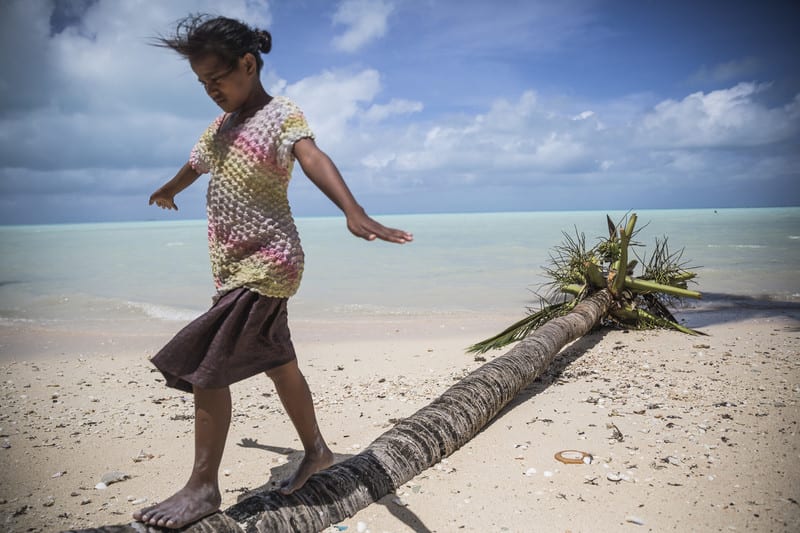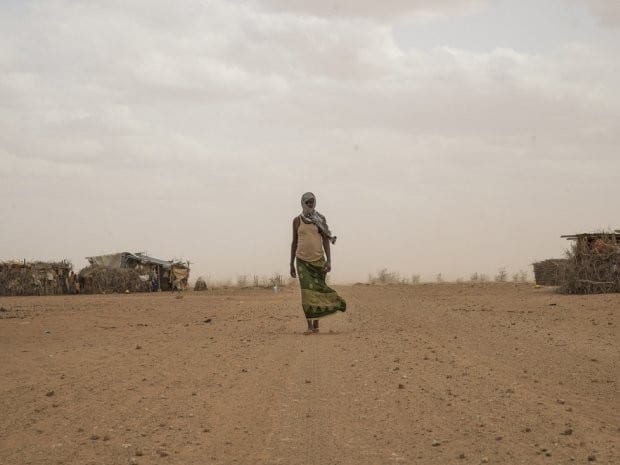New Zealand is facing a critical test of its credibility on tackling the climate crisis and its ability to remain a trusted partner to the region as Pacific Island Forum leaders prepare to meet in Tuvalu this week, Oxfam New Zealand said today.
Photo: Vlad Sokhin/Oxfam
New Zealand is facing a critical test of its credibility on tackling the climate crisis and its ability to remain a trusted partner to the region as Pacific Island Forum leaders prepare to meet in Tuvalu this week, Oxfam New Zealand said today.
Oxfam New Zealand executive director Rachael Le Mesurier said New Zealand’s progress so far showed promise but its rising emissions and glaring omissions in proposed climate policies were concerning.
“Pacific leaders, including New Zealand Prime Minister Jacinda Arden, will gather at Tuvalu, where the community is grappling with the extreme toll of climate damage – where rising seas and higher storm surges are already swallowing land and contaminating scarce water supplies, and where homes, livelihoods and the fate of an entire nation are at stake,” Le Mesurier said.
“New Zealand is among a tiny minority of developed countries in which climate pollution is going up not down. The government must go further, faster to get emissions down now while also stepping up to finance a thriving, climate-resilient future for our neighbours in the Pacific and beyond.”
Le Mesurier said this week’s leaders’ meeting was the first since the Intergovernmental Panel on Climate Change’s landmark report on limiting warming to 1.5C, which laid out the severe consequences of failing to limit warming to 1.5C and the scale and pace of global action necessary to achieve this goal, including that global emissions must be roughly halved over the next decade and reach zero before the mid-century.
“This week’s meeting also comes three months after the government published details of the proposed Zero Carbon Act, legislation that in its final form will be a key test of New Zealand’s commitment to addressing climate change.
“New Zealand must create a Zero Carbon Act that has a 2040 target for net zero emissions, covering all greenhouse gases; phase-in the full pricing of agricultural emissions much faster; and accelerate reforms of the Resource Management Act in order to be taking the climate crisis seriously.
“As well as getting our own house in order, we have a responsibility to support the resilience, resolve and leadership of those at the front lines of climate destruction – starting with a US$30 million contribution to the Green Climate Fund in the October replenishment round,” Le Mesurier said.
“Pacific island countries are tackling the grave injustice they face head on – having contributed the least to climate change, these nations are making bold national commitments, and playing a major role in international negotiations.
“If New Zealand is to remain a trusted partner with the members of the Pacific family, and with that retain the ability to help shape the region’s future, it must immediately step up its response to the number one priority of our region – the climate crisis.”
-ends-







